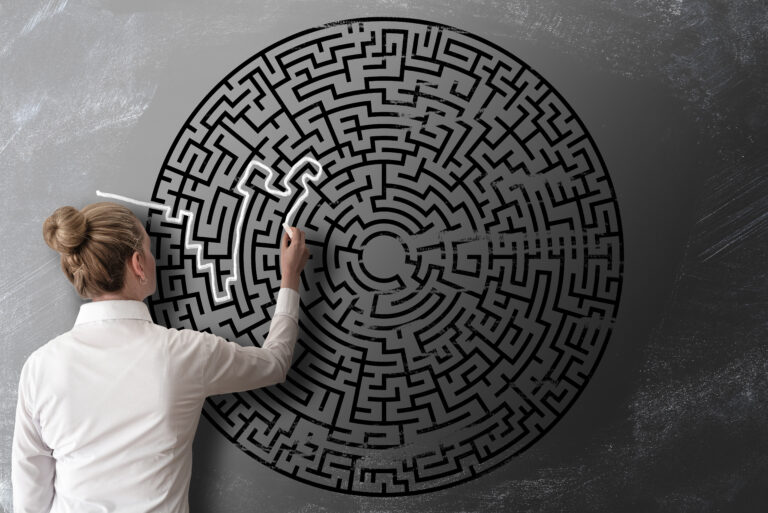I used to run with music. Loud, fast-paced, motivating playlists that pushed me through every mile. Like a lot of people, I saw running time as an opportunity to multitask—to squeeze in podcasts, audiobooks, or catch up on news. My runs became just another space to fill with input.
But a couple of years ago, I stopped. No more headphones. No distractions. Just me, the road, my breath, and the rhythm of my feet hitting the pavement. What started as a random experiment turned into a habit that reshaped the way I think, work, and process stress.
This isn’t a post about athleticism or how to shave minutes off your 5K. It’s about what happens when we stop filling every empty space and start listening—to ourselves, to our surroundings, and to the things we often overlook.
The Noise We Don’t Notice
We live in a noisy world. Even when it’s quiet, it’s not. There’s the constant buzz of emails, Slack messages, meetings, and background podcasts. We’re told we need to maximize every minute, optimize every task, and always be productive.
I was doing that, even on my runs. I thought I was making the most of my time. But the truth is, I was losing something important: space to think clearly. Or maybe, to not think—to just exist, without input.
When I stopped running with headphones, the silence was loud at first. It felt uncomfortable. I noticed how many thoughts were bouncing around in my head. Some were useful. Others were anxious noise—unfinished tasks, conversations I replayed, decisions I hadn’t made.
But as the miles went by, something started to shift.
Presence in Motion
Without distractions, I began to notice things I hadn’t before. The uneven rhythm of my breath. The way my feet landed differently depending on the road. The smell of wet grass in the morning. A neighbor I’d passed dozens of times but never actually seen.
Running without headphones made me more present—not just in the run itself, but in everything. It carried over into my work and home life. I found myself more patient, more focused, and more clear-headed after each run. And I realized it wasn’t the run itself—it was the quiet, the simplicity, and the lack of input.
We underestimate how much our brains process when we’re constantly stimulated. Removing that stimulation, even briefly, gives your mind a chance to reset. For me, it became less about performance and more about clarity.
Unfiltered Thinking
Some of my best ideas now come during silent runs. Not because I’m trying to solve anything, but because I’m not. It’s a strange paradox: when you give your brain space, it often figures things out on its own.
Running without headphones turned into a kind of moving meditation. Problems I’d been stuck on at work—product decisions, people challenges, strategic trade-offs—started to unravel naturally. I’d come home with not just mental clarity, but a quiet sense of confidence that I didn’t have before.
The key is that the thinking isn’t forced. It’s not the same as sitting down at your desk and saying, “Okay, time to figure this out.” It’s passive, gentle reflection that happens when your body is moving and your brain isn’t being bombarded.
Focus That Lasts
One unexpected benefit? It improved my ability to focus when I’m not running. When you practice being present—really present—without needing to reach for your phone, your playlist, or a podcast, it becomes easier to carry that stillness into other parts of your life.
I’ve found that I’m better at single-tasking now. I listen more closely in meetings. I’m less reactive with email. I’m more deliberate with my time. And I’m more aware of when my mind starts to wander or crave distraction—because I’ve learned what focus feels like without noise.
Why It Matters for Leaders
As someone leading a company, clarity isn’t optional. My job isn’t just to make decisions—it’s to make thoughtful, forward-looking ones. And in a world full of data and demands, that’s harder than ever.
Silent running has become one of my tools for clearing the mental fog. It helps me stay grounded and connected to what really matters. It reminds me that not every question has to be answered immediately, not every problem needs input from five sources, and not every quiet moment is wasted.
Leaders need space. We need time to think without a keyboard in front of us or a meeting on the calendar. And we need to model that it’s okay—not just okay, but essential—to slow down and tune in.
Finding Stillness in Motion
I don’t think everyone needs to stop listening to music when they exercise. I’m not anti-podcast or against multitasking. But I do think we could all use more silence—more space to hear our own thoughts and reconnect with the present.
For me, running without headphones has become a daily ritual that anchors my focus and sharpens my clarity. It’s 30 or 40 minutes where I’m not consuming, reacting, or planning. I’m just running. And somehow, in that simplicity, I find answers I didn’t know I was looking for.
If you’re feeling mentally scattered, creatively blocked, or just burned out from input overload, try it. Go for a walk or a run with no soundtrack. It might feel strange at first. But give it time. You might be surprised what your mind has to say when it’s finally quiet enough to listen.


